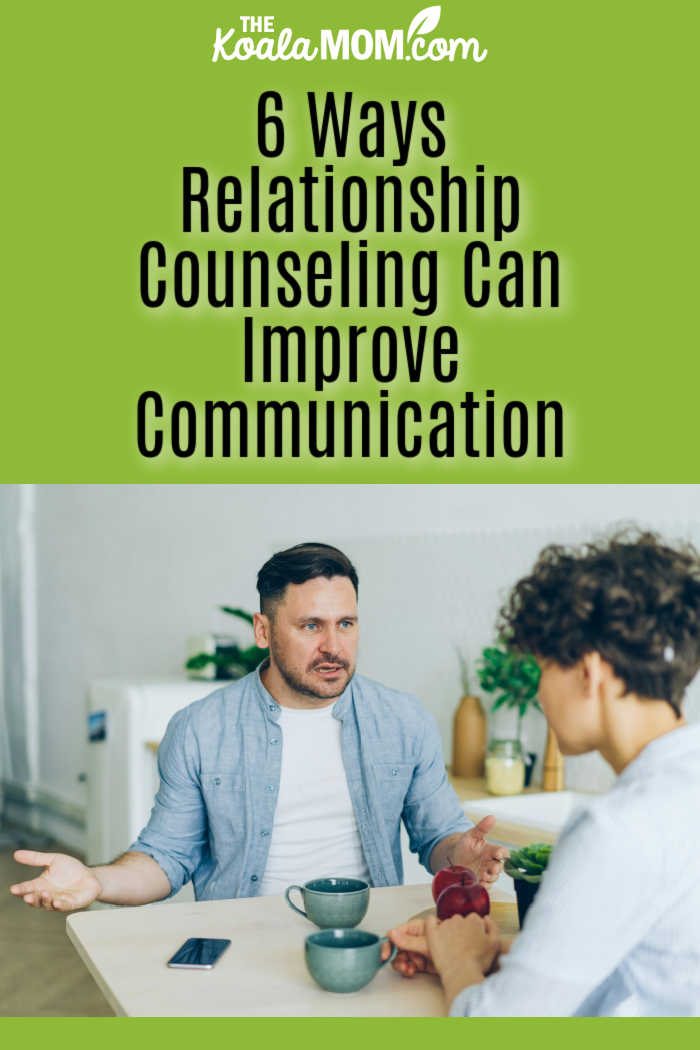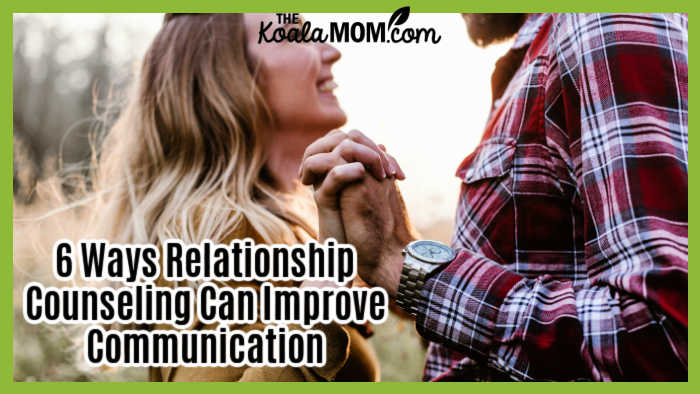Communication is the backbone of any relationship. Misunderstandings, hurt feelings, and unresolved conflicts often arise from poor communication. Relationship counseling can provide the tools and insights you need to enhance communication with your partner. Here are six ways relationship counseling can help improve your communication skills.

1. Identifying Communication Patterns
Many couples have established ways of interacting that can be harmful. Counselors can help you pinpoint these patterns, whether they involve avoidance, aggression, or passive-aggressive behavior. To identify patterns, counselling from coloradorelationshiprecovery.com can help you uncover underlying communication styles and habits that may be affecting your relationship. By understanding how you communicate, you can begin to change these habits and replace them with healthier alternatives.
2. Creating a Safe Space for Dialogue
In counseling sessions, you and your partner can engage in open discussions in a safe environment. A skilled counselor will facilitate conversations that encourage honesty and vulnerability. This setting allows you both to express feelings without fear of judgment or retaliation. Feeling safe to share thoughts and emotions is crucial for effective communication, and counseling fosters this environment.
A good counselor will help with:
- encouraging open expression: A safe space encourages both partners to express their thoughts and emotions freely. It’s crucial that each person feels heard and understood. When you know your partner is genuinely listening, you’re more likely to share your true feelings, leading to deeper emotional intimacy.
- establishing ground rules: Setting ground rules in counseling can help maintain a respectful dialogue. These rules might include no interrupting, avoiding name-calling, and ensuring that each person has the right to speak without being criticized.
- fostering empathy: In a safe space, both partners can practice empathy by putting themselves in each other’s shoes. Counselors often encourage you to reflect on your partner’s feelings and perspectives, which can significantly enhance understanding.
3. Learning Active Listening Skills
Effective communication is not just about expressing your thoughts— it also involves listening. Counseling can teach you the art of active listening, which means fully concentrating on what your partner is saying rather than planning your response while they talk. This skill helps you understand your partner’s perspective better and demonstrates that you value their input, fostering deeper connections and reducing misunderstandings.
4. Setting Healthy Boundaries
Another vital aspect of communication is understanding and respecting boundaries. Counselors can help you both define what is acceptable and what isn’t in your relationship. Establishing clear boundaries allows you to communicate your needs and desires effectively, reducing the likelihood of conflict. When both partners feel their boundaries are respected, it leads to a more harmonious and communicative relationship.
A healthy boundary in a relationship will:
- promote individuality: Healthy boundaries allow you and your partner to maintain your identities within the relationship. When you define what is acceptable for you, it creates space for both individuals to grow and thrive. This individuality fosters mutual respect, as both partners understand and appreciate each other’s needs and aspirations.
- reduce resentment: When boundaries are unclear or consistently crossed, it can lead to feelings of resentment and frustration. Setting clear limits helps prevent these negative feelings from building up over time. By addressing issues before they escalate, you create a healthier emotional environment where both partners feel heard and valued.
- encourage open communication: Boundaries create a framework for discussing difficult topics without fear of overstepping. When you both know what is off-limits, you can navigate conversations more effectively and avoid triggering sensitive issues. This structure leads to more honest and open dialogues, helping you express your thoughts and feelings more freely.
- strengthen trust: Trust is fundamental in any relationship, and setting healthy boundaries can significantly enhance it. When both partners respect each other’s limits, it fosters a sense of safety and security. As you both adhere to these boundaries, trust builds, making it easier to communicate openly and honestly in the future.
5. Navigating Difficult Conversations
Not all conversations in a relationship will be easy. Relationship counseling equips you with the skills to navigate tough discussions, whether about finances, family dynamics, or personal goals. Counselors often provide strategies for approaching these sensitive topics in a way that minimizes defensiveness and promotes understanding. This preparation can lead to more productive conversations and fewer emotional explosions.
6. Developing Conflict Resolution Strategies
Every couple will face conflicts at some point. Relationship counseling can teach you effective conflict resolution strategies that enable you to handle disagreements constructively. Instead of resorting to shouting matches or silent treatments, you’ll learn techniques to address issues calmly and respectfully. This approach not only helps resolve current conflicts but also prevents future misunderstandings from escalating.

Improving communication in a relationship is essential for building a strong, lasting connection. Relationship counseling offers various tools and techniques to enhance your communication skills, making it easier to express feelings, listen actively, and resolve conflicts. If you’re struggling with communication in your relationship, consider seeking the support of a professional counselor.

No Responses Yet